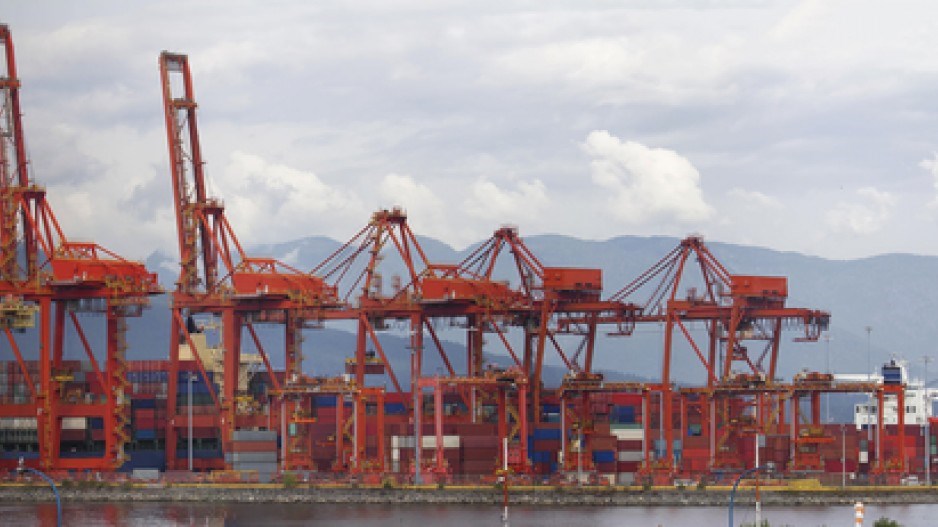British Columbia's international trade volume pulled back sharply in March but the drop was predictable, given the recent trucking strike that affected Port Metro Vancouver, and is expected to be temporary.
Total merchandise export volume fell nearly 6% from February to a seasonally adjusted $2.77 billion, with shipments rather than prices contributing to most of the decline. Lower dollar-volume exports were broadly recorded across sectors. The steepest decline was in forestry products, which fell 21%, attributable to supply-chain interruptions and mill production curtailment due to the strike. Other sectors recording substantial pullbacks were agriculture, energy (including bituminous coal), some manufacturing sub-sectors and consumer goods. Not surprisingly, B.C.'s performance was weaker than the national picture in March, which recorded a flatter month-to-month performance and a year-over-year gain of about 7%, compared to a B.C. drop of 10%.
On the import side, volumes also declined, albeit at a more modest 4% from February. The most significant declines were related to consumer products and some intermediate goods like industrial machinery and parts.
While the March performance put a damper on current-dollar export growth, which pared the year-to-date gain to 4% from 12% in February, exports are expected to rebound and lift provincial economic growth this year. The end of the strike in late March could fuel an aggressive rebound as shippers deal with current demand and some backlog of activity.
Meanwhile, global growth and, more importantly, U.S. economic conditions point to stronger demand for B.C. goods, particularly in the wood products sector. Canadian dollar depreciation should generate some competitive advantage for exporters and limit import growth.
Broader real export growth, which includes shipments of both goods and services to international and other provincial markets, is forecast to reach 4% this year. This is forecast to outpace import growth, and contribute to economic expansion.




